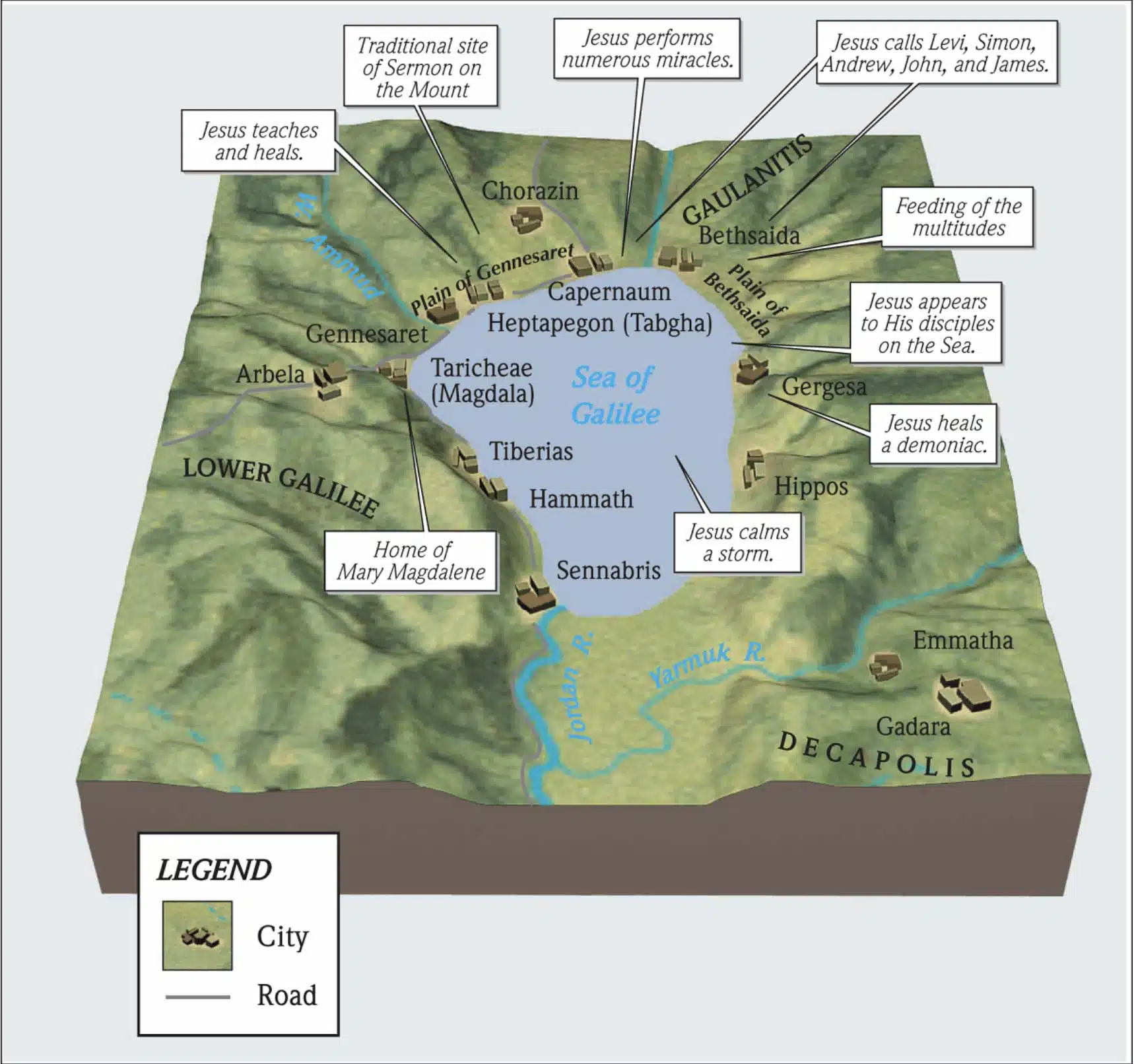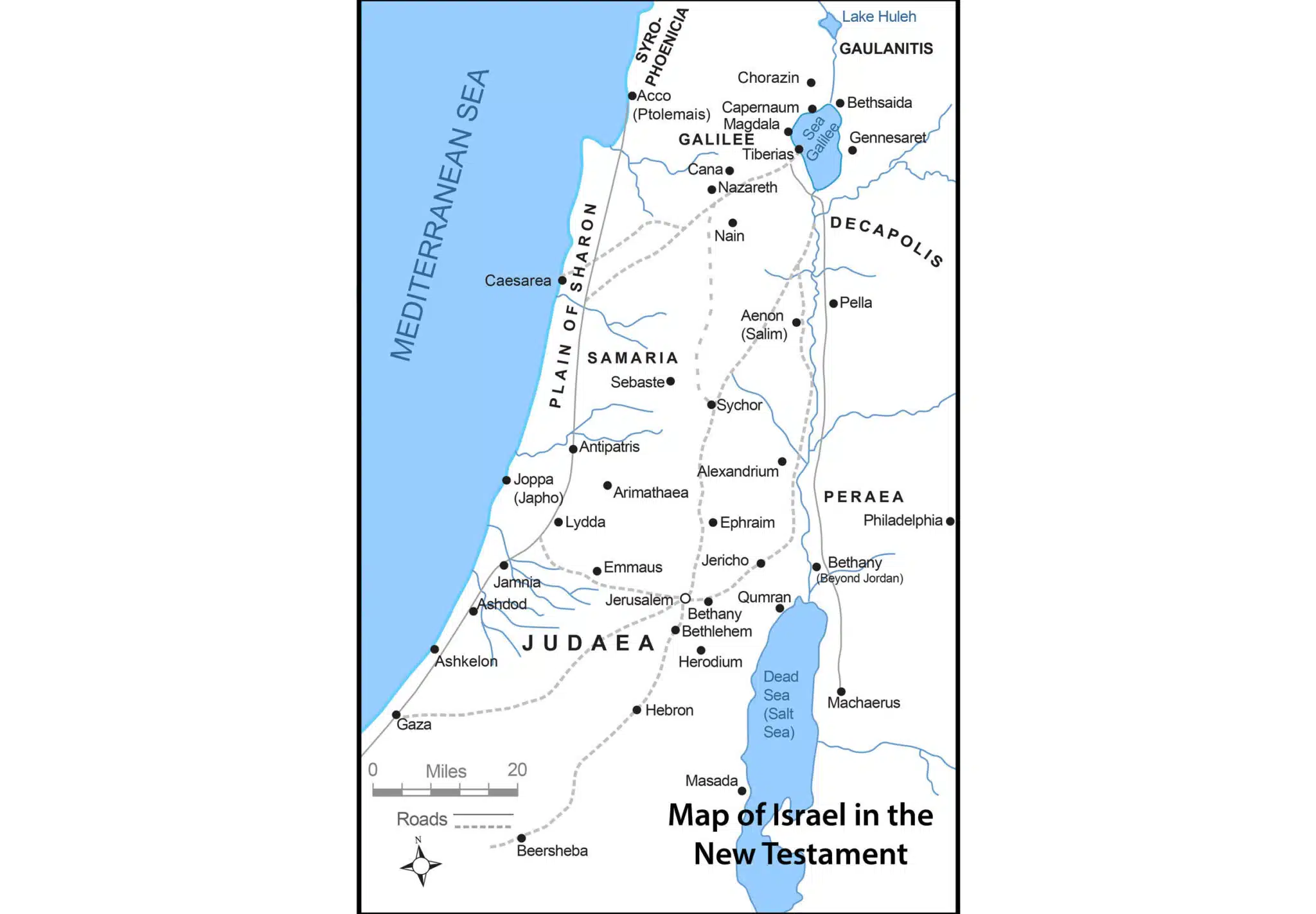Jesus’s audience was taken aback by His method of teaching.
There is no apparent parallel account of Matthew 7:28-29 in the Gospels.
Matthew’s narration resumes after Jesus is finished speaking. The first thing Matthew points out is that the crowds were amazed at this teaching when Jesus had finished these words (v 28). At the beginning of Jesus’s sermon, it was made clear that He went to a mountain and was speaking to His disciples (Matthew 5:1). The word translated crowds is “ochlos” and means a gathering of people. Matthew uses ochlos in Matthew 9:23, which states:
“When Jesus came into the official’s house, and saw the flute-players and the crowd in noisy disorder…”
In this verse, it is clear that “crowd” refers to a gathering within the confines of the house. When Matthew says Jesus was teaching the crowds, he is almost certainly referring to the group of disciples listening to Jesus on the mountain. After they come down from the mountain, they are met by “large crowds” (Matthew 8:1). Matthew adds the term “large” as a distinction from the much smaller group of disciples who followed Jesus up the mountain to hear the sermon. It is interesting to note that the disciples who made the effort to follow Jesus were the ones who got the great blessing of hearing these amazing teachings.
Remarkably, what the crowds (the disciples) were amazed by was not first and foremost the awesome message about God’s kingdom that Jesus had just delivered. The things Jesus taught were consistent with what they knew of the Law given through Moses. They knew to follow the Ten Commandments (Exodus 20:1-17, Deuteronomy 5:1-21). They knew to love your neighbor (Leviticus 19:18). They knew about the two paths leading to life or death (Deuteronomy 30:15-20). Jesus’s teaching was not new. The things Jesus was teaching was the same as Moses had taught. What amazed them was His authority. He confronted the hypocrisy of outwardly conforming to the law and got to the heart of the matter with His own authority. He called people out for not living consistently with what Moses already gave them.
They were amazed at how Jesus delivered it. Matthew writes, for He was teaching them as one having authority, and not as their scribes (v 29). His audience was not amazed at Jesus’s speaking ability, but His speaking authority.
Whenever the scribes taught, they appealed to the highest authority they could to verify or substantiate the truth of what they said. In the rabbinic tradition, a teacher’s thoughts were not greater than his authority. Rabbi’s would often provide lengthy rabbinic genealogies to support what they taught. “This was taught by Rabbi so-and-so who was the student of Rabbi such-and-such, who was the student of Rabbi…” and so on.
But throughout this sermon Jesus appeals to the Highest authority there is—Himself. Every single time (14 total) that He said “But I say to you…” it was a theological thunderclap in the ears of the Jews. This, more than any of the radical things He taught, amazed them. Matthew acknowledges their amazement in writing as a way of sympathizing with His readers in their astonishment, as if to smile dumbfounded with them, “Yep, He said THAT!”
When we consider the fact that Jesus was a man, it should amaze us as well.
Biblical Text
28 When Jesus had finished these words, the crowds were amazed at His teaching; 29 for He was teaching them as one having authority, and not as their scribes.
Check out our other commentaries:
-
Matthew 23:13 meaning
Jesus speaks the first of eight woes to the scribes and Pharisees. It is issued because they refuse to enter God’s kingdom or to allow...... -
Habakkuk 3:1–2 meaning
Habakkuk asks God to have compassion on Judah amid their exile so that they can experience spiritual revival and restoration....... -
Leviticus 18:1-4 meaning
God tells the Israelites through Moses that His ways are in their best interest. The ways of the Egyptians and the Canaanites, which are the...... -
Genesis 10:21-24 meaning
Shem had five sons. Aram was the father of four sons. Arpachshad was the grandfather of Eber and an ancestor of Abraham. ...... -
Exodus 35:30-35 meaning
The LORD appointed Bezalel and Oholiab to work as master craftsmen on the tabernacle. He filled them with the Holy Spirit in order to accomplish......




